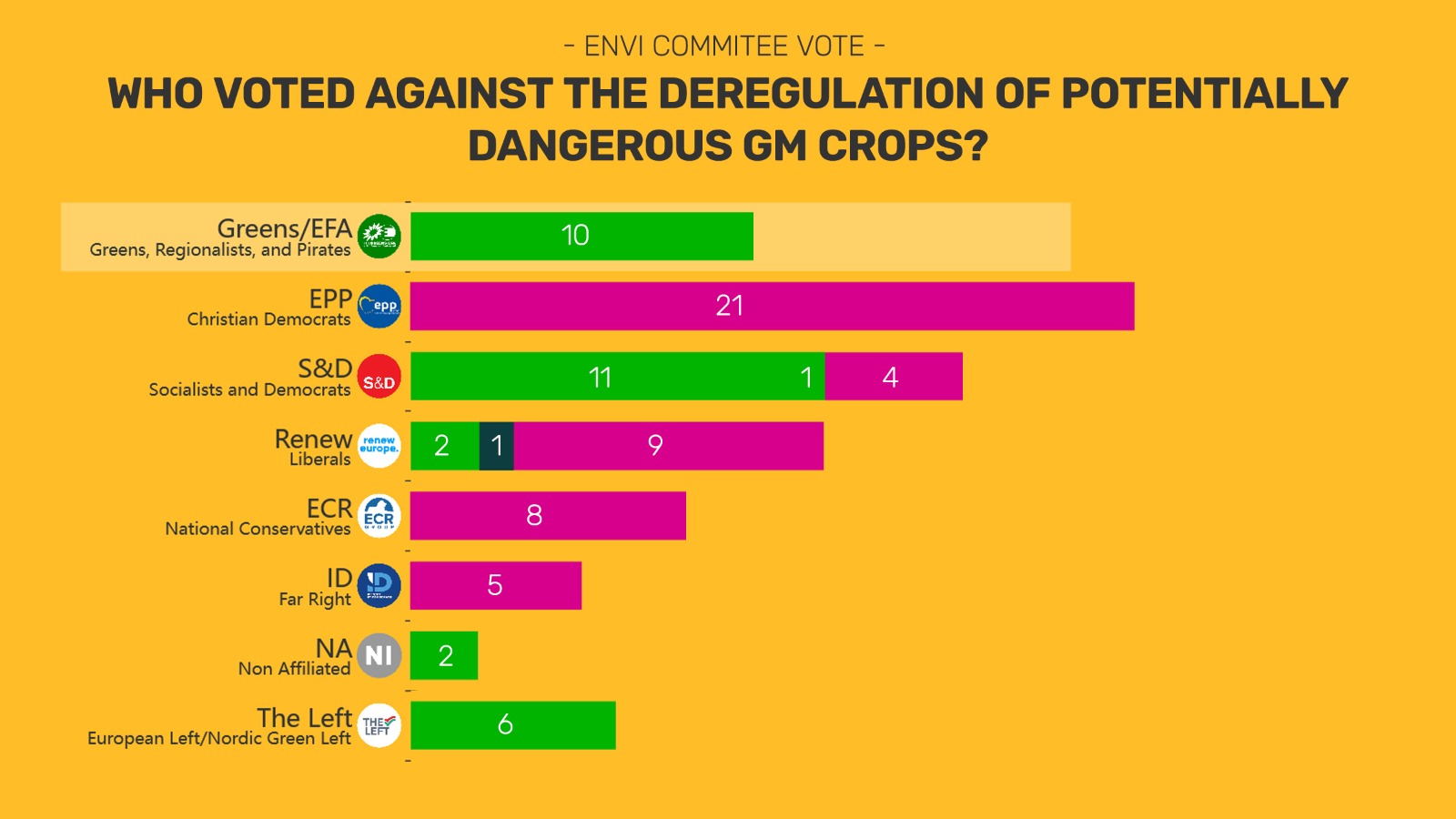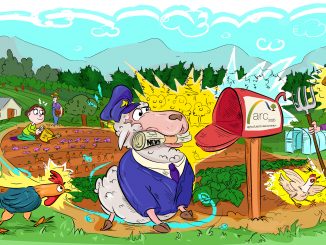
The EU’s proposal to loosen the rules around the use of new genetic technologies in plant breeding has been greenlit by the European Parliament’s environment committee, meaning it is now on its way for a full Parliamentary vote in February.
The new genetic techniques (NGTs) – also known as gene editing or new GMOs – describes several scientific methods used to alter genomes and genetically engineer certain traits into plants.
After months of debate, the committee adopted its position, overseen by centre-right Jessica Polfjärd, on the contentious file in a vote on Wednesday (24 January) with 47 votes to 31 and 4 abstentions.
The position supports the idea that NGT plants should be split into two categories; those considered equivalent to conventional ones (NGT 1 plants) and would therefore be exempted from the requirements of the EU’s GMO legislation; and those which will continue to have to comply with stricter rules (NGT 2 plants), including mandatory labelling of products.
While MEPs agreed there should be no mandatory labelling for consumers for NGT 1 plants, the report calls on the Commission to evaluate the evolution of consumers and producers’ perception of the new techniques seven years after entry into force.
Meanwhile, MEPs called for all NGT plants to remain prohibited in organic production, concluding that this compatibility “requires further consideration”.
While the Commission’s original proposal chose not to deal with the thorny issue of patenting, the position sets out a full ban on patents for all NGT plants. This is intended to “avoid legal uncertainties, increased costs and new dependencies for farmers and breeders,” according to a Parliament statement released following the vote.
MEPs also requested a report on the impact of patents on breeders’ and farmers’ access to varied plant reproductive material by June 2025, as well as a legislative proposal to update EU rules on intellectual property rights accordingly.

Reactions
The move was met with consternation from the Greens, who called the outcome of the vote “bad news for consumers, organic farmers and the environment”.
Maintaining that the report makes the originally proposed text “even worse”, Green MEP Tilly Metz vowed to “keep fighting to prevent any deregulation of new genomic techniques” on X.
Meanwhile, fellow Green and farmer Thomas Waitz lamented the fact that conservatives and liberals “rejected measures to prevent the contamination of organic farming with NGTs”, lambasting the lack of coexistence measures and protection for organic farmers in the event of contamination.
For his part, socialist MEP Christophe Clergeau maintained that this was “only the beginning” and that the fight against NGTs “continues”.
Meanwhile, environmental campaign group Greenpeace said that the draft law “weakens progress achieved in the EU on farmers’ rights, and protection of people’s health and the environment, to benefit the biotech industry”. The group argues that the move may even be in violation of EU constitutional law, according to a recent legal analysis.
But others, including rapporteur Jessica Polfjärd, celebrated the outcome of the vote, calling the proposal “critical for strengthening Europe’s food safety in a sustainable manner”.
“We finally have a chance to implement rules that embrace innovation and I look forward to concluding negotiations in the Parliament and with the Council as soon as possible,” she said, calling the current regulatory framework “hopelessly outdated”.
Likewise, EU farmers association Copa-Cogeca Copa and Cogeca celebrated the fact that the move brings the EU farming community “closer to a position on the use of NGTs in EU Parliament”, calling NGTs a “crucial asset” to help European farmers facing the consequences of climate change.
Next steps
The greenlight now means that the report will pass to the Parliament plenary for approval by the full house, scheduled during the 5-8 February 2024 plenary session.
If adopted, the Parliament will then be ready to start the inter-institutional negotiations, known as ‘trilogues’. However, the Council is still struggling to find a common position on the file.
Sources say that the vote in the Parliament will mean that the holder of reins of the current Presidency – Belgium – will spur on efforts to get an agreement between member states in order to move forward with negotiations.
More
ARC Lookahead – What’s on the EU agrifood policy menu in the coming months?
Brussels News – GM-nos, Howling Wolves and the Many Missed Environmental Targets
Brussels Roundup – Stasis for Animals, Tightrope for new GMOs





